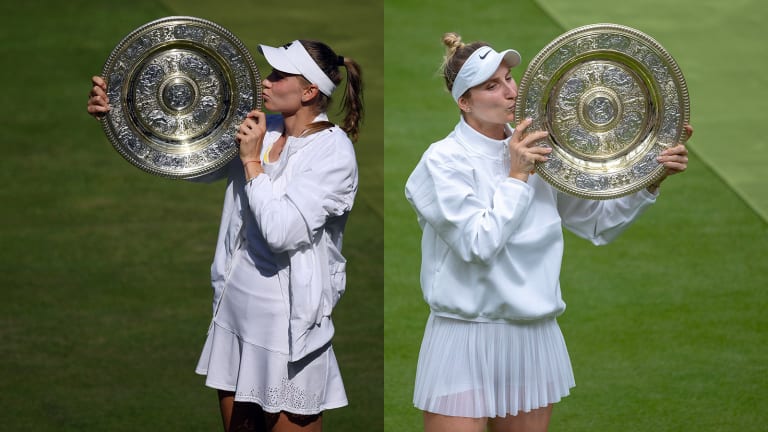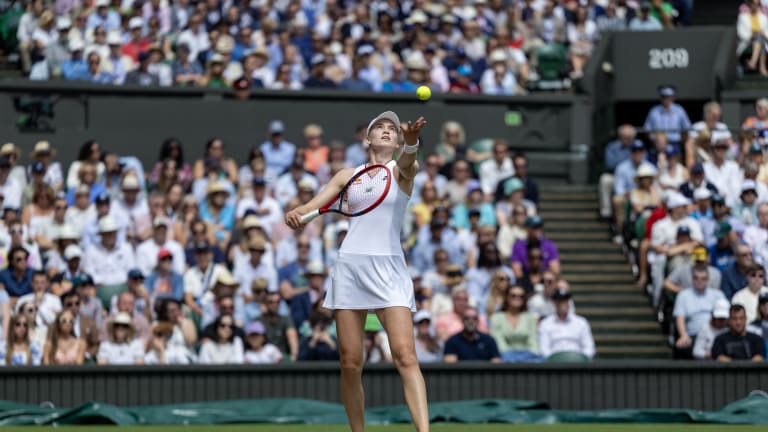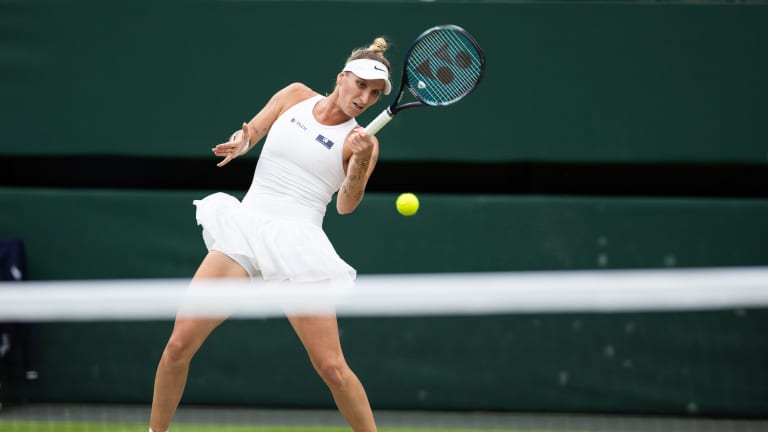Wimbledon
Elena Rybakina, Marketa Vondrousova can shut down the skeptics at Wimbledon—again
By Jun 25, 2024Wimbledon
Wimbledon to replace line judges with electronic line calling from 2025
By Oct 09, 2024Wimbledon
The amazing journey of Henry Patten from IBM data logger to Wimbledon doubles champion
By Jul 16, 2024Wimbledon
Hsieh Su-Wei, Jan Zielinski win mixed doubles title at Wimbledon
By Jul 15, 2024Wimbledon
Why Wimbledon Endures
By Jul 15, 2024Wimbledon
Novak Djokovic seeks 2024 answers for Alcaraz and Sinner after great effort: 4 ATP Wimbledon takeaways
By Jul 14, 2024Wimbledon
Carlos Alcaraz is a champion establishing how high he will climb with latest Wimbledon title
By Jul 14, 2024Wimbledon
Nicolai Budkov Kjaer makes history in winning junior boys' Wimbledon title; Renata Jamrichova wins girls' title
By Jul 14, 2024Wimbledon
Carlos Alcaraz beats Novak Djokovic again in Wimbledon final for fourth Grand Slam title
By Jul 14, 2024Wimbledon
For Jasmine Paolini, Barbora Krejcikova was one forehand and one serve too good in the Wimbledon final
By Jul 13, 2024Wimbledon
Elena Rybakina, Marketa Vondrousova can shut down the skeptics at Wimbledon—again
The 2022 and 2023 champions have room to improve overall, but on grass, their weaponry is as lethal as ever.
Published Jun 25, 2024
Advertising

The 2022 and 2023 Wimbledon champions seal their achievements with a kiss.
Advertising
Advertising

Elena Rybakina's serve is devastating anywhere, but especially on the lawns at the All England Club.
© Corbis via Getty Images
Advertising

Marketa Vondrousova's lefty forehand has proven to be a formidable obstacle for opponents.
© Simon Bruty